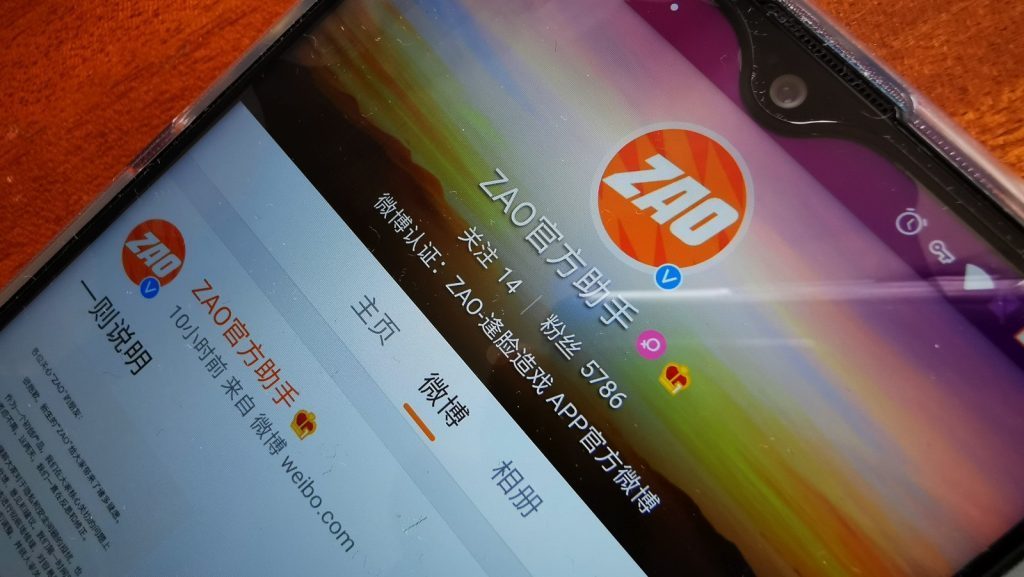On several occasions we have done coverage on the new trend in the Internet, being the platforms of DeepFakes, based on Artificial Intelligence to modify or generate images or audio that defy reality. On previous occasions we put forward a case controversial with respect to a particular application, today we bring to ZAO, a application china that you became a movie star. On Friday, the new app launched by Momo, a developer of social networks, instantly became viral on the chinese social networks. Allows users to upload a single portrait and, in seconds, to see your face superimposed on the actors in scenes iconic movie. For Sunday, it had become the entertainment app free most downloaded in the Apple Store of China. This is a platform based on Artificial Intelligence, using networks of confrontation generative, or GAN, artificial intelligence algorithms behind the deepfakes. While GAN has been used for the editing and the exchange of faces before (each time more in Hollywood movies), the use of ZAO in a single photo, along with the speed and fluidity of your exchange, shows the extent to which the state of the art in the counterfeit media has advanced. Within A few hours of its launch, ZAO began to arouse privacy concerns, specifically about a clause in the user agreement that gave the developer the right to use all uploaded photos free of charge in perpetuity. It also allowed them to transfer that right to any third party without the permission of the user. Legal experts in China said that it was not legal, and for the sabbath, the developer of the application had yielded under the pressure and removed the clause. WeChat, the main application of social networks of China, it is forbidden to share pictures or photos of ZAO. We say that it is a Déjà Vu for the similar case of FaceApp, a photo editing application that went viral in July. The application also used GAN to retouch portraits of people and had accumulated more than 150 million photos of faces since its launch. ZAO received a violent reaction much more rapid and acute, but probably also because the been used by millions of users when it reviewed its policy. It should be noted that the frequency of such incidents demonstrates the ease with which personal data of a user can now be co-opted and repurposed beyond their control. But the “positive” side, is that the case shows that people have also become more sensitive to privacy and are less willing to give it up without a fight. The following two tabs change content below. I am a student of economics, interested in innovation and technological development, always faithful to that tomorrow will be a better day.
Contents

